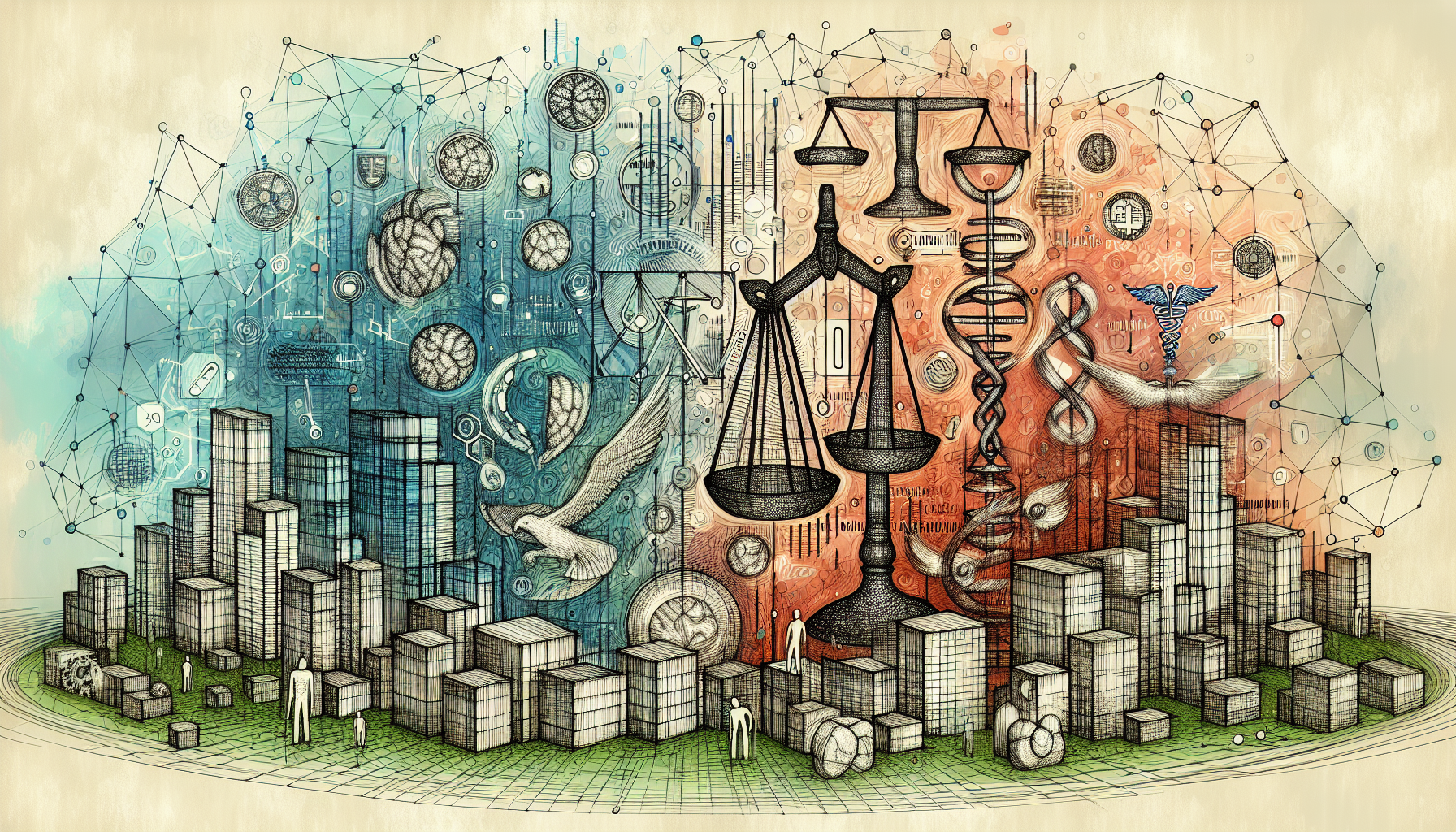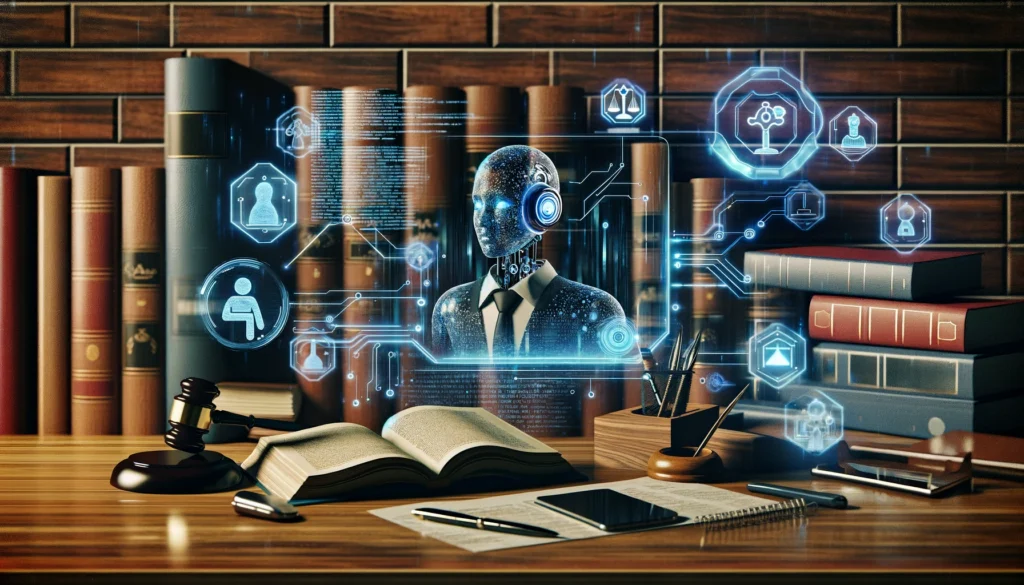
Igniting Ethical Legacies: An Overview
Ethical wills—documents that convey personal values, beliefs, and life lessons—are gaining prominence as a complement to traditional wills. Aimed at sharing wisdom and values with loved ones, ethical wills hold profound psychological importance. However, drafting them can be time-consuming and emotionally taxing. Enter advanced AI systems like ChatGPT. Leveraging AI can significantly streamline the drafting process, providing invaluable assistance for paralegals striving to capture clients’ ethical legacies with both precision and empathy.
Now that we understand the essence of ethical wills and the potential of AI, let’s delve into the critical role paralegals play in crafting these unique documents.
Role of Paralegals in Crafting Ethical Wills
Paralegals are the unsung heroes in the intricate process of drafting ethical wills. Tasked with the responsibility of capturing the essence of a client’s values and memories, they must balance sensitivity with accuracy. Paralegals navigate various challenges, such as ensuring clarity while preserving the emotional depth of the client’s message and juggling the constraints of limited face-to-face interactions.
The stakes are high: ethical wills need to reflect personal nuances that a standard template can’t capture. Paralegals often face emotional resistance from clients hesitant to delve into such personal matters. Furthermore, ethical wills must be meticulously drafted to avoid ambiguities and misinterpretations, a task that demands both time and emotional labor.
Let’s transition to a paradigm that can alleviate these challenges: leveraging ChatGPT to aid in the drafting process.
Harnessing ChatGPT: A New Paradigm
ChatGPT, developed by OpenAI, is an advanced Large Language Model (LLM) that can assist in drafting various types of documents, including ethical wills. This AI can understand context, generate human-like text, and provide prompts to streamline the writing process. For paralegals, ChatGPT serves as a powerful tool to enhance productivity, offering well-crafted preliminary drafts that can be refined further. By reducing the initial drafting time, paralegals can focus on fine-tuning and personalizing the ethical will to meet the specific needs of the client.
Now, to get the best out of this technology, understanding how to craft nuanced prompts is crucial.
Crafting Nuanced Prompts: The Magic of Specificity
The effectiveness of ChatGPT hinges on the quality of the prompts it receives. Vague instructions yield generic outputs; thus, specificity is key for paralegals aiming for high-quality drafts. Here are some tips on creating effective prompts:
- Be Clear and Specific: Specify the type of document and its required tone. For example, “Draft an ethical will that emphasizes family traditions and conveys a tone of heartfelt wisdom.”
- Provide Context: Include background information about the client to guide the AI. For example, “The client is a retired teacher who values lifelong learning and wishes to emphasize the importance of education.”
- Break it Down: Split the task into smaller prompts. Start with separate sections like personal values, life lessons, and wishes for the future. Example prompts could include:
- “Draft a paragraph about the client’s love for lifelong learning.”
- “Compose a section on the importance of family traditions.”
- Iterative Refinement: Use iterative prompting to progressively refine the draft. For example, “Expand on the section about family traditions with specific anecdotes.”
Having learned the art of crafting effective prompts, the next crucial step is ensuring the generated content meets legal and ethical standards.
Quality Control: Ensuring Precision and Ethics
It’s essential to maintain human oversight when using AI-generated content. Paralegals must review and edit the drafts to ensure precision and alignment with ethical guidelines. Here are some quality control techniques:
- Cross-Check Facts: Verify that all personal anecdotes and values accurately represent the client’s intent.
- Consistency: Ensure the tone and style are consistent throughout the document.
- Ethical Considerations: Scrutinize the generated content for any ethical discrepancies or sensitive information that should be omitted or rephrased.
Despite the AI’s capabilities, a human touch is indispensable for context and sensitivity. Next, let’s explore how templates can further streamline this process.
Templates and Frameworks: Building Efficiency
Standardized templates and frameworks can enhance efficiency and consistency in drafting ethical wills. Paralegals can pre-load ChatGPT with these templates to expedite the initial drafting phase. Key components of such templates may include:
- Opening Statement: A structured format for the introduction, explaining the purpose of the ethical will.
- Core Values: Pre-defined sections to outline personal values, beliefs, and guiding principles.
- Life Lessons and Anecdotes: Frameworks to capture pivotal life lessons and memorable stories.
- Future Wishes: Templates to state aspirations and hopes for the future generations.
Leveraging these templates within ChatGPT not only saves time but also ensures coherence and thoroughness. Moving on, let’s discuss some advanced techniques to optimize AI-generated outputs.
Advanced Techniques: Beyond Basics
To further optimize AI outputs, paralegals can utilize advanced techniques such as context-awareness and iterative prompting. These approaches allow for more refined, contextually accurate content generation. For example:
- Context-Awareness: Continuously update the AI with additional context to improve output relevance. Example, after initial drafts, feeding back more specific details about the client’s history or preferences.
- Iterative Prompting: Use follow-up prompts to adjust and sharpen the content. For instance, “Add more emotional depth to the section on family traditions.”
These techniques ensure that the AI not only drafts content but does so in a manner that is rich, nuanced, and aligned with the client’s unique story. But how do we make sure this technology continuously improves? That’s where feedback loops come in.
Integrating Feedback Loops: Enhancing AI and Human Collaboration
Continuous improvements can be achieved by establishing feedback loops. Regularly reviewing AI-generated content and feeding back corrections help in refining the AI’s future outputs. Paralegals should:
- Document Edits: Track changes made to AI drafts, providing insights into areas that need improvement.
- Regular Training: Update the AI with new prompts and correct outputs to enhance learning over time.
Feedback loops ensure an evolving, dynamic collaboration between AI and paralegals. Finally, how can adopting these advanced tools help in future-proofing a paralegal’s career?
Future-Proofing: Staying Ahead in the Digital Era
The legal landscape is rapidly evolving, with AI playing an increasingly crucial role. Paralegals who adapt to and leverage tools like ChatGPT are positioning themselves at the forefront of this digital transformation. Staying adept with advanced AI technologies ensures not only enhanced productivity but also a significant edge in a competitive field.
Embrace AI-driven tools, refine your skillset, and future-proof your career in this ever-changing digital era.


